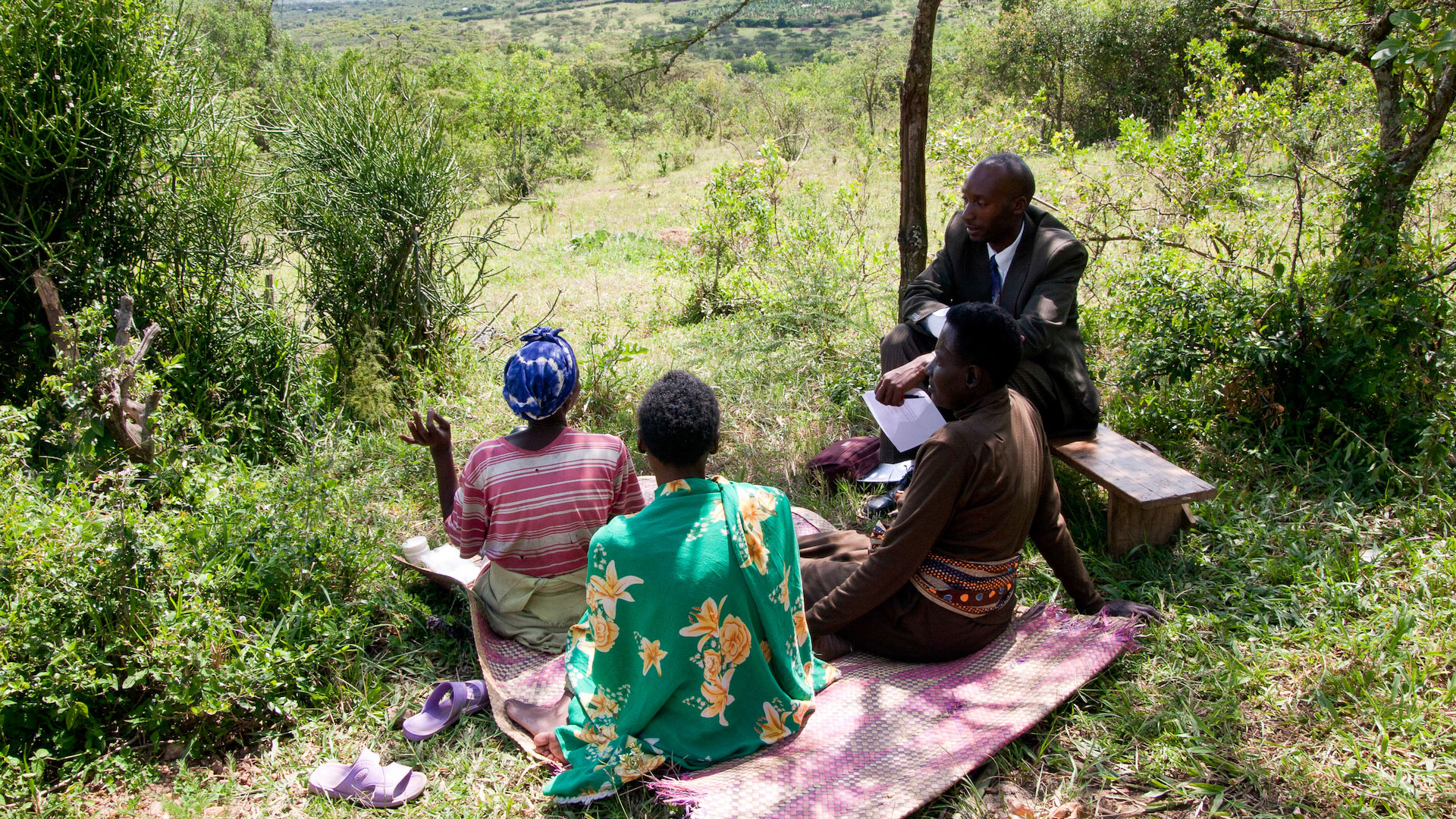
The world is getting smaller and smaller. Many of our neighborhoods and churches are filling with those who don’t share our own culture, traditions, values, and beliefs, and because of this, followers of Jesus face many new questions. We need to consider how globalization may affect our social habits, ministry strategies, and theology.
For those of us who work in cross-cultural environments, perhaps these questions are less new, but we would be wise to consider the ways in which our environments are forming us as worshipers. One such question, we will address in what follows: how does this experience/exposure to the vastness of creation and the diversity within God’s people change the way that we read and interpret Scripture?
“Globalization in general, and specifically cross-cultural ministry experiences, prepare us to read the Bible well.”
As Christians, our Bible reading and study is indispensable, for here the Spirit breathes the ever-creating Word of God into our thirsty souls, making us more like Jesus and preparing us for faithful work in his coming kingdom. It comes from the mouth of God and equips his people for Spirit-filled service (2 Tim. 3:16). This reality is colored by our ever-shrinking world. Globalization in general, and specifically cross-cultural ministry experiences, prepare us to read the Bible well. Here’s why.
We Don’t Know What We Don’t Know
Not only is there an infinite number of things you don’t know—something that hopefully even the most arrogant among us would admit—but we often don’t even know what it is that we don’t know. The ways that we live our lives, process information, make decisions, etc., are far more culturally conditioned than any of us could ever guess. Every time we cross cultural boundaries, our assumptions are challenged. Even when we return to our home cultures, we often reevaluate and recategorize practices that once were entirely automatic. Strange that we’ve never noticed those things before, right?
Imagine having a pair of lenses over your eyes. Could you describe those lenses to someone else? Probably not. In a way, you would have never really even seen them; you would have just seen everything through them. To get a better understanding of your own lenses you would probably have to consider other people’s lenses as well—how they see things. Perhaps some things that you thought were fuzzy are actually quite clear to someone else.
We approach Scripture with an enormous amount of preconceived ideas, many of which we couldn’t name if we tried. When we listen to and talk with believers from other parts of the world—in whom, of course, the Spirit is also doing his creative work—we are made aware of these assumptions. In a way, we come to a better understanding of what it is that we don’t know. This newfound humility drives us to further prayer and study, perhaps even through more nuanced lenses.
The Gospel Is a Multifaceted Diamond
Missiologists like Jason Georges and Jacksons Wu have been sounding the alarm. The good news of Jesus’s victory as it is presented in Scripture cannot be exhausted by a few words from one cultural vantage point. After all, Paul famously appealed to the surpassing “breadth, width, depth, and length” of Christ’s love (Eph. 3:18).
This understanding in no way relativizes the truth of God’s revealed Word. It simply admits what we have already stated above: our individual understandings are fraught with both strengths and weaknesses. We are often oblivious to glorious truths that others see very clearly. The Bible’s recurring agricultural images, societal understandings of shame and honor, and perceived reality of spiritual forces are often lost on those in the West. Think of the gospel as a magnificent, multifaceted gem that glints differently from different angles. It’s one gem, solid as a rock, but until we shift our viewpoint, our understanding is at risk of being two-dimensional.
Hopefully, this idea is not frustrating; it should be utterly liberating. For those of us with the privilege of knowing other followers of Christ from different backgrounds, there is a fabulous opportunity before us. As the gloriously diverse body of Christ reads and studies the Bible together, both security in orthodoxy and freedom in interpretation multiply.
“As the gloriously diverse body of Christ reads and studies the Bible together, both security in orthodoxy and freedom in interpretation multiply.”
The Good News Is Good News Precisely Because It Is “International.”
Allow me to beat another dead horse: the gospel is not just about you, your sin problem, and where you end up when you die. It is about the coming kingdom of Jesus, inaugurated at Jesus’s first resurrection breath and has been stretching across the globe ever since. The implications of this reality, both theological and ethical, are all over the New Testament.
God’s plan to extend his love to the world through the nation of Israel (Ex. 19:6) has found its fulfillment in Jesus Christ. And now we, his body, empowered by the Spirit, carry on that same mission on every continent (1 Peter 2:9). The vision in Revelation 7 is not accidental; it’s nothing less than the goal of creation: all the peoples of the earth united in Christ, worshiping God through the Spirit.
I relish every opportunity to attend a church gathering in a language I can’t speak. It forces my heart and mind to consider the vastness of our Lord’s church and to remember that we are not at its center. Experiencing the breadth of the church is nothing less than seeing the unfolding of salvation history (think of Paul’s main point in Galatians 2 and Ephesians 3). This is precisely the “mystery” that Paul is talking about: the mark of covenant membership is faith, and that faith was (and is) spreading across the globe to the glory of the Father. When we approach Scripture with this pair of glasses, a whole lot more comes into focus.


